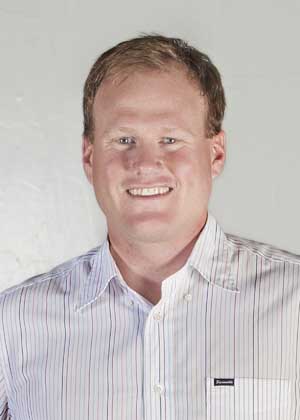
Sean Gilbert
“Don’t let it get to you! Worry about what you can control!”
As a baseball pitcher I used to hear those words repeated to me any time a hitter would get a bloop single or someone wouldn’t make a play on defense. My coach was trying to teach me to ignore the things I couldn’t control and focus only on what I directly had a hand in.
While this has been the viewpoint from which I have lived my life, our industry is in a time when external factors are having an outsized impact on our ability to make a profit, and I believe it is best that we understand those factors in order to position our businesses for the challenges to come.
As our annual meeting planning committee came together this spring to discuss topics, the proposed themes quickly fell into two distinct concepts: growing better fruit with the latest research and perspectives, and discussion of the latest trends and issues, both domestically and abroad.
From these differing items, the concept of “Manage what you can control, plan for what you can’t” became our theme.
This year’s Batjer speaker is Vikram Mansharamani, a renowned economist and Harvard lecturer who will give us his unique perspective on the geopolitical landscape as well as ideas for how our businesses can succeed in our current environment.
As our industry tries to understand the role of outside capital, dynamics of the markets we export to, and where we are headed, Mansharamani will provide a fascinating talk for us to enjoy.
Despite some wonderful temperatures for cherry, apple and pear harvests, it was still a year of continued challenges for issues such as bitter pit and fire blight.
At the same time, input costs for both labor and spray seem to be continually outpacing inflation. With the goal of tackling these issues head-on, our committee has put together an agenda that brings the best minds and speakers from around the country and the world to educate us with ideas that make our industry stronger.
Of particular interest, our committee felt that fire blight needed a stand-alone session to give it the importance we believe it deserves. In the last few years, in my own operation, I’ve learned that everything I thought I knew about fire blight was either incomplete or incorrect and that gaps in that knowledge threaten the viability of a large number of acres.
Tianna DuPont, Washington State University tree fruit extension specialist, has put together an ambitious session that will help us tackle this destructive problem.
Other topics that excite the committee include labor benchmarking, efficient orchard structures, resistance management in postharvest decay, canopy management, pest and disease management, and, of course, the new WSU-bred apple variety WA 38, to be sold under the brand name Cosmic Crisp.
With this being the last year to get ready before Cosmic Crisp goes to market, we felt that this new variety deserved its own session. Millions of trees are in the ground already and a tremendous amount of research continues to be done, so the topic should be both timely and fascinating.
Our Spanish session this year will be headed by Lauren Gonzalez of Kershaw Orchards, who has put together a lineup that has a lot of crossover topics with the English-language session.
For those who haven’t been through the process, the annual meeting is a tremendous undertaking, and the efforts by those involved must be recognized.
I would like to thank Tim Kovis and Jon DeVaney of the Washington State Tree Fruit Association and the rest of the WSTFA staff, as well as everyone who chose to serve on the planning committee. Special thanks also go to the session managers for all of the time and great ideas they put into this for the benefit of our industry.
As we attend the many sessions of the 2018 annual meeting, it is my hope that people will be challenged to evaluate their own operations and share ideas with their peers in the hallways, at shared meals and at the trade show.
In my opinion, our industry’s success has come from special climate and geographical advantages, as well as a broad mix of independent growers and vertically integrated grower-packer-marketers that keep our industry robust and antifragile.
I believe that this annual meeting is the perfect venue to support our diverse grower base and help us get stronger than ever in the face of adversity.
See you in Yakima in December! •
Sean Gilbert of Gilbert Orchards is the chair for the Washington State Tree Fruit Association Annual Meeting and Northwest Hort Expo.






Leave A Comment